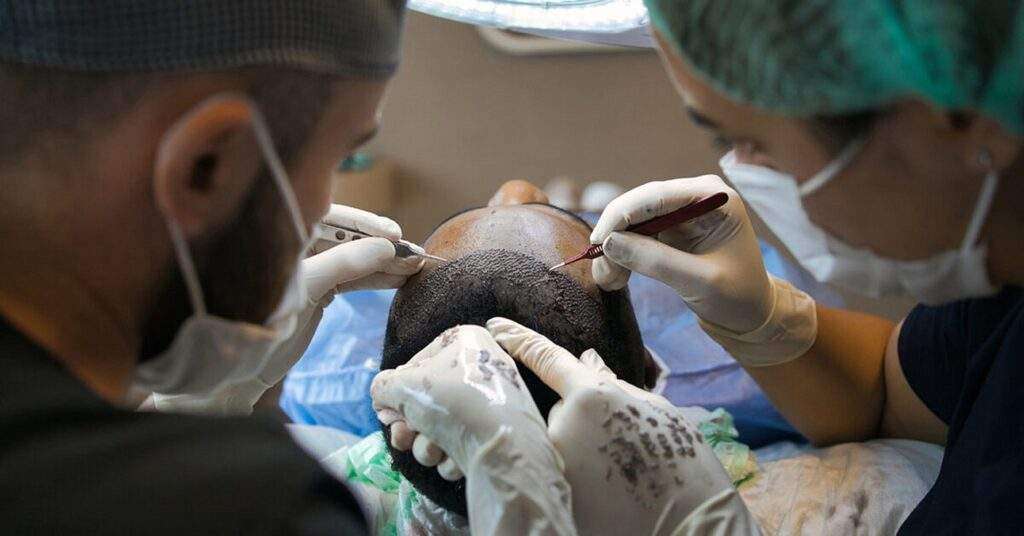
Alopecia, characterised by hair loss, can deeply affect individuals both emotionally and mentally. The causes of alopecia vary, but the emotional toll is a shared experience. Procedures for the transplant for hair have emerged as a lifeline for many, offering a chance to regain confidence and self-esteem, ultimately transforming lives.
Navigating the Emotional Journey
Living with alopecia is emotionally taxing. Hair loss often leads to diminished self-confidence and self-worth, affecting overall quality of life. For those with alopecia, addressing their condition becomes a priority for aesthetic reasons and to restore emotional well-being.
The Vital Role of Hair Transplants
Hair transplants have proven to be a viable solution for individuals with alopecia. These procedures involve transferring hair follicles from one part of the body, usually the back or sides of the head, to the areas affected by hair loss. This innovative process facilitates the growth of new, natural-looking hair where it’s needed most.
Alopecia Comes in Different Forms
Alopecia manifests in various types, and the treatment choice depends on the type and severity of the condition. Here are some common types of alopecia and how hair transplants can serve as a lifeline for those affected:
- Androgenetic Alopecia: This is a common form of hair loss, often known as male or female pattern baldness. Hair transplant procedures are particularly effective in addressing this type of alopecia. Transplanting healthy hair follicles into thinning or balding areas yields natural and enduring results.
- Alopecia Areata: An autoimmune condition causing unpredictable hair loss in patches. While hair transplant options may be limited for those with extensive alopecia areata, the procedure can benefit those with smaller affected areas.
- Scarring Alopecia: This type results from various factors, including physical trauma, burns, or underlying medical conditions. Hair transplants provide a practical solution to cover and restore the appearance of scarred areas.
- Traction Alopecia: Ad traction alopecia can lead to hair loss, often triggered by excessive pulling or tension on the hair. Hair transplants offer a lifeline by transplanting hair into the affected areas and helping to prevent further hair loss.
The Numerous Benefits of Hair Transplants
Hair transplants bring several advantages to individuals grappling with alopecia. Key benefits include:
- Natural Appearance: Transplanted hair seamlessly blends with existing hair, resulting in a more natural and aesthetically pleasing outcome.
- Long-Lasting Results: Hair transplants typically provide enduring results, offering individuals a sense of permanence and stability.
- Enhanced Self-Esteem: Restored hair can boost self-confidence and emotional well-being, empowering individuals to embrace life fully.
- Minimal Maintenance: Transplanted hair requires no special care, allowing individuals to go about their daily routines effortlessly.
Selecting the Right Hair Transplant Clinic
Choosing a reputable and experienced clinic is crucial for the procedure’s success. When considering a hair transplant, take the following factors into account:
- Surgeon Expertise: Research the qualifications and experience of the surgeon performing the procedure. Skilled surgeons are more likely to deliver exceptional results.
- Technology and Techniques: Opt for clinics employing the latest transplant techniques and technology. Advanced methods often lead to superior outcomes.
- Patient Reviews: Reading patient reviews and testimonials can gauge the clinic’s reputation and previous clients’ satisfaction.
- Personal Consultation: Reputable clinics offer personal consultations to assess your unique needs and provide a customised treatment plan.
A Fresh Start on the Horizon
For individuals grappling with alopecia, the transplant for hair procedure offers more than just a solution to hair loss; it provides a lifeline to a brighter and more confident future. The emotional impact of restored hair can be profound, allowing individuals to move forward with newfound self-assurance and enthusiasm for life. While alopecia may present challenges, hair transplants offer a path to regaining a sense of normalcy and embracing the beauty of self-confidence.